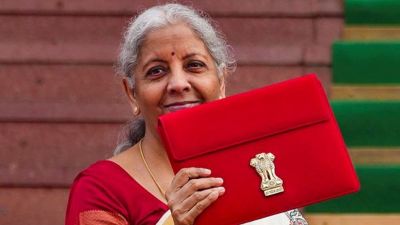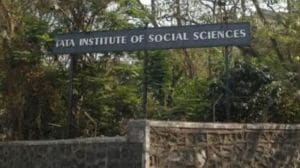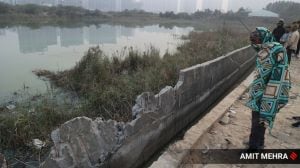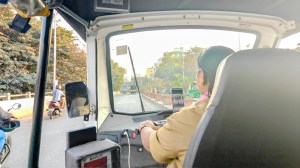Caste in Class
FOR everything that is true of politics, the opposite is also true. On August 12, the Supreme Court ruled that educational institutions 15...

FOR everything that is true of politics, the opposite is also true. On August 12, the Supreme Court ruled that educational institutions 8212; whether run by minority religious bodies or otherwise 8212; had the absolute right to admit students into professional courses and were not obliged to accept state government norms on reservations for socially backward groups.
At this, Tamil Nadu8217;s chief minister, J. Jayalalitha, went into a tizzy. With less than a year to go for assembly elections, and with reservations for non-Brahmin communities ever a hot issue in Tamil Nadu, she denounced the judgement, even threatened take over of colleges.
Paradoxically, a good number of politicians in the state 8212; including some in her own party, the AIADMK 8212; were secretly celebrating. After all, politicians 8212; sometimes working through the proxy of friends and relatives 8212; are estimated to own over 50 per cent of private professional colleges in Tamil Nadu.
An invitation to admit students solely on merit would be a business bonanza. So would be the affirmation of a 15 per cent premium-fee quota for NRIs.
On the other hand, if the reservation clause is forced upon them by the government 8212; the UPA has already talked of a possible law to upturn the court verdict 8212; the 8216;8216;politics of empowerment8217;8217;, on which many of them have built their public careers, can triumph yet again.
Depending on how you see it, this is a dilemma or a win-win situation.
| nbsp; |
While the ruling AIADMK in Tamil Nadu has protested against the court verdict, institutions like Chennai8217;s St Peter8217;s Engineering College, run by party senior M. Thambidurai stand to benefit
|
The list of politicians who own colleges cuts across party lines. Union Shipping Minister T.R. Baalu DMK runs King8217;s College of Engineering, Pudukkottai. Union Minister of State for Home S. Reghupathy DMK has promoted the J.J. College of Arts and Sciences, also in Pudukkottai.
M. Thambidurai AIADMK, former deputy speaker of the Lok Sabha and one-time Union law minister, owns a dozen higher education institutions. Two of them 8212; Institute of Management and Technology, and National Institute of Law 8212; are in Faridabad, Haryana.
|
|
Former state Congress president S. Thangabalu runs the Thangavelu Engineering College, Salem. His party colleagues Jayamohan a former MP and Dhandayuthapani together own Priyadarshini Engineering College, Vaniyambadi. DMK MLA Velu runs the Arunai Engineering College, Thiruvannamalai.
It all began in 1984, when the then AIADMK government, headed by the late M.G. Ramachandran, opened up higher education to entrepreneurs. Politicians smelt an opportunity 8212; Jeppiar Sathyabhama Deemed University, G. Vishwanathan Vellore Institute of Technology, S. Jagathrakshakan Bharath Institute of Higher Education and Science, A.C. Shanmugham Dr MGR Deemed University, Maduravoyil were early starters.
In Tamil Nadu, there are 231 private engineering colleges, six medical colleges, some 60 with MCA and MBA programmes and at least 140 private colleges offering paramedical courses. Nine of every 10 professional education institutions in the state are private owned.
IN public, politician-education barons have to reconcile competing interests. They speak of interventionist policies for backward communities, but, as proprietors of money-spinning educational institutions, they also cheer the free market.
Faced with an election year BC/MBC/SC backlash, political parties are making the right noises. PMK leader S. Ramadoss has called for legislation 8216;8216;to ensure social justice for the poor and continuation of the government quota in unaided higher educational institutions8217;8217;.
Ramadoss himself has a blueprint ready for a massive university, including engineerng and medical faculties, and a training centre for IAS aspirants. It is due to come up in Tindivanam, north Tamil Nadu, close to Ramadoss8217; Thailapuram farmhouse.
Jayalalitha has demanded education be restored to the 8216;8216;State List8217;8217;, as well as asked for Parliament to undo the 8216;8216;anomalous situation8217;8217; created by the Supreme Court.
The Thanthai Periyar Dravidar Kazhagam has announced state-wide protests. This party is a breakaway faction of the Dravidar Kazhagam 8212; from which the DMK also broke away 8212; and its leader K. Veeramani runs the Periyar Maniammai College of Engineering in Vallam, Thanjavur.
Millions of rupees were being lost. A way had to be found to keep the money at home.
Kerala has been a fast learner. In three years, 161 self-financing colleges have come up. The state had announced a 50-50 ratio for admissions 8212; half the seats could be filled by the college management, the rest by those qualifying from the government-conducted common entrance exam.
The government had also asked a committee headed by Justice K.M. Thomas to fix fee norms. The committee had recommended a uniform fee for all categories of students: Rs 1.13 lakh a year for medical courses and Rs 38,000 for engineering ones.
Then came tragedy. In 2004, Rajani, an engineering student in one of the new colleges, jumped off a building. The Justice Thomas committee had observed those who couldn8217;t afford fees could perhaps get an educational loan from a bank. But Rajani was turned away by the banks, the small piece of land her family owned was not adequate collateral.
Rajani8217;s suicide led to street violence, with Left student bodies demanding self-financing colleges be abolished. Interestingly, while the CPIM spearheaded the movement, the daughter of its state secretary, Pinarayi Vijayan, was a student in an expensive self-financing college in Tamil Nadu.
KERALA has its exceptions. The Amrita Vishwa Vidya Peeth is run by the Mata Amritanandamayi Math. It keeps 85 per cent of its seats for merit-based admissions. However, this math-run institution8217;s fee structure is almost double that of Justice Thomas8217; recommendations: Rs 2.5 lakh a year for MBBS, Rs 1.3 lakh for BDS and Rs 75,000 for nursing. 8216;8216;We are not obliged to follow the state regulations. We follow UGC norms, as a deemed university,8217;8217; says manager Gopalakrishnan Nair.
Almost every religious and charitable organisation of some note in Kerala now runs a college or is planning one. NRIs and big traders are moving into the business. The CPIM is reportedly set to become the first political party to sponsor a self-financing college.
|
|
The past week has confused matters. 8216;8216;Things would be clear only by the next admission season. With all political parties asking for a new Central legislation, we are keeping our fingers crossed,8217;8217; says K. Moidu, chairman of the KMCT Engineering College, one of the largest in north Kerala.
According to sources at the Kerala Self-Financing Colleges Association, the sector has seen investment worth Rs 2,600 crore, directly employing 18,000 people. That apart, these college-entrepreneurs also prevent the annual flight of Rs 400 crore to other states, by keeping Keralite students home.
IF Kerala8217;s politicians are only just waking up to the profits of education, Karnataka8217;s politicians are pastmasters. Professional education became big business in Karnataka in the early 1980s, when then Congress chief minister Gundu Rao facilitated it. Thus began Karnataka8217;s capitation fee frenzy.
A Supreme Court judgment of 1993 forced colleges to give merit precedence over money. It resulted in the state government instituting a common entrance test for 85 per cent of seats in private professional colleges. Built into this 85 per cent were quotas for SCs and STs, backward classes, the handicapped and so on.
This suited everybody except those who had put in the money. Court cases on seat quotas and fee hikes became a constant feature. On the basis of judicial rulings or ad hoc agreements, the Karnataka government and private college managements have admitted students following different principles over the past three academic years.
In 2003-04, it was a 75:25 government: management deal for all admissions. In 2004-05, it was a 75:25 deal for engineering and a 60:40 deal for medical and dental seats. For 2005-06, it is 65:35 for engineering and 50:50 for medical and dental.
FROM 2006-07, the seat equations will change dramatically if the August 12 Supreme Court verdict is followed. Of the total 3,345 medical seats in 29 medical colleges, the Karnataka government will now control only 450 8212; all at its four medical colleges.
Of the 2,400 dental seats in 39 colleges, the government will control only 60 seats 8212; at its lone dental college. Of the 36,000 engineering seats in 109 colleges, the government will control 930 seats in its three colleges and a little over 3,000 in the private colleges it supports.
For politicians who also run educational institutions, this presents a conflict between political position and private profit. There are many negotiating this landmine. G. Parameshwar, former Congress higher education minister, runs Tumkur8217;s Sri Siddhartha Medical College, Sri Siddhartha Institute of Technology and Sri Siddhartha Dental College. Congress MP R.L. Jalappa owns both the R.L. Jalappa Institute Of Technology, Dodballapur, Bangalore, and the Sri Devaraj Urs Medical College, Kolar.
Shamanur Shivashankarappa Congress is Davangere8217;s super-educator, having promoted the Bapuji Institute of Engineering and Technology, and the Bapuji Dental College and Hospital. Veteran Congress politician and former Union minister C.K. Jaffer Sharief own the K.N.S. Institute of Technology.
A.B. Malaaka Raddy Congress, former medical education minister, owns the M.R. Medical College in Gulbarga. C.M. Ibrahim, former Union minister and senior Janata Dal Secular leader, is behind the H.K.B.K. College of Engineering, Bangalore. Mallikarjun Kharge, Congress minister, runs the Engineering College, Gulbarga.
For the moment, the politician-educators are either reticent or politically correct. Says Jalappa, 8216;8216;There must be reservation for those from backward classes, economically weak categories, SC-ST and rural students. If the government is willing to pay our institution for these students, we are willing to reserve 20-25 per cent of seats for them.8217;8217; Clearly Jalappa, a backward caste leader, is not in this for charity!
- 01
- 02
- 03
- 04
- 05































